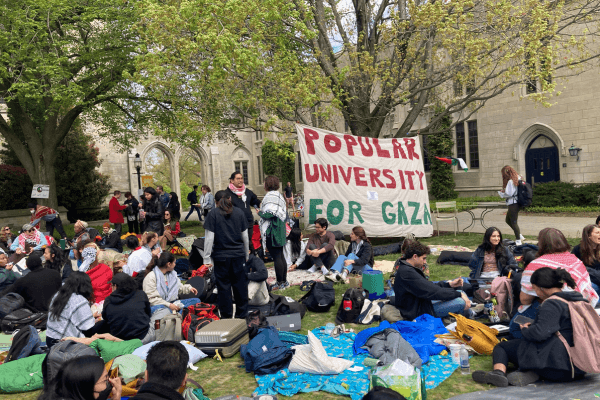International students in the United States will have to leave the country if their college or university is fully online in the fall, according to new regulations released by the U.S. Immigration and Customs Enforcement (ICE) on Monday.
It was not immediately clear how many visa holders will be affected by ICE's new guidance.
More than a million United States students in higher education come from overseas, totaling to 5.5 percent, according to data published by the nonprofit Institute of International Education.
International students studying at U.S. colleges and universities generated $41 billion in revenue and supported 458,290 jobs in the 2018-2019 academic year, according to an economic analysis by NAFSA: Association of International Educators.
China ranks first in countries of origin for international students with a population of 370,000 for the 2018-2019 academic year. On Tuesday, Chinese Foreign Ministry spokesman Zhao Lijian told reporters in Beijing that the country was closely following policy changes in the United States and would do everything to protect the rights and interests of Chinese students.
"Active students currently in the United States enrolled in such programs must depart the country or take other measures, such as transferring to a school with in-person instruction to remain in lawful status," read the statement from ICE's Student and Exchange Visitor Program. "If not, they may face immigration consequences including, but not limited to, the initiation of removal proceedings."
ICE's guidance applies to holders of F-1 and M-1 visas which allow non-immigrant students to pursue academic and vocational coursework, respectively. The State Department issued 388,839 F visas and 9,518 M visas in the 2019 fiscal year, according to data from the agency.
The guidance does not affect international students taking in-person classes. It also does not affect F-1 students taking a partial online course-load as long as some of their classes are conducted in-person. M-1 vocational program students and F-1 English language training program students will not be allowed to take any classes online.
U.S. universities have started announcing their plans for instruction during fall semester amid the coronavirus pandemic. On Monday, Harvard announced classes would be entirely online for the 2020-2021 academic year for both undergraduate and graduate students. Princeton announced that half of its undergraduates would be welcomed back for each semester and most instruction will take place online.
Eight percent of colleges and universities are planning to operate online, according to the Chronicle of Higher Education, which tracks the reopening plans of more than 1,000 U.S. institutions. Sixty percent plan for classes in-person and 24 percent propose a hybrid model.
ICE’s new guidance is the latest of new restrictions to documented and undocumented immigration in response to the coronavirus pandemic. In June, the Trump administration suspended work visas for non-immigrant workers, saying that they competed with U.S. citizens for jobs. The administration also suspended the admission of asylum seekers at Mexico’s border, citing health risks as justification.
Got something to say about what you're reading? We value your feedback!






